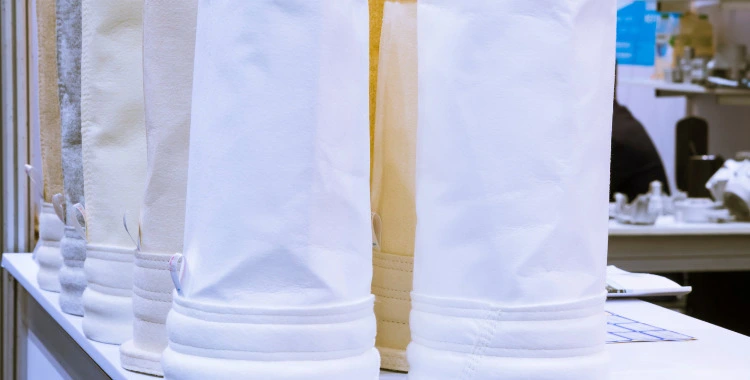
Too early replacement of a baghouse or dust filter bags cartridge can lead to unnecessary costs and take up maintenance time that could have been used for more other pressing tasks. The risk of workers being exposed to hazardous dust and the possibility of explosions increases if the filter is not changed on time. The filter will become more clogged and will increase the energy cost to run the system. This will also cause an increase in the strain on the fans, bearings, and other components of the dust collection system. How can you find the "sweet spot" that is neither too early nor too late but just right?
Dust leaking from the collector's exhaust is the most obvious sign that a filter has been damaged. Another sign of a damaged filter is a rapid and sudden drop in differential pressure. It is crucial to monitor the differential pressure levels daily and plot them. Consider adding a bag sensor to your system when choosing one. A filter can be damaged by many other things than an explosion or fire. Hydrolysis is a process whereby moisture and heat can cause damage to common filter bag fabrics like polyester or aramid. Hydrolysis is a chemical reaction where water reacts with filter bag fibers. This can cause bags to lose their dimensional stability and stop collecting dust. Mechanical wear due to abrasive dust and over pulsing or damaged cages are other failure mechanisms.
Filter blinding is the most common reason to replace your filters. Filter blinding is when the bag's useful life has ended. The bag has become too dusty to be able to handle the required airflow. The differential pressure between new filter's "clean" and "dirty" sides are relatively low. It slowly builds up over time. The differential pressure will rise more quickly as the filter nears its end of life. A variety of factors affects the filter's useful life. These include the type of dust it is used for, the moisture/chemical composition in the gas stream, humidity, operating conditions, and other factors. When specifying a system, many dust collector buyers neglect to consider the frequency of filter changes. Before specifying the system and the filter media, it is a good idea to consult a dust collector specialist.
Many filter buyers base their selections on the lowest cost without considering whether the media suits the application. Dust filter bags from third parties that are not properly sized will not work optimally. It is possible that the filter media may not meet the requirements of the application. It is not uncommon for problems to arise quickly if this happens. It would be better if you look for signs of dust in the stack or the particulate monitoring system that detects them.
